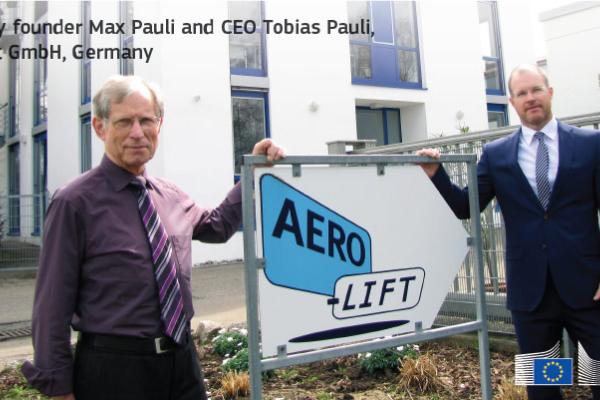- Country or region
- African, Caribbean, Pacific (ACP)
- Southern African Development Community (SADC)
- Trade topics
- Economic Partnerships
- Negotiations and agreements
- Trade policy
The EU signed an Economic Partnership Agreement (EPA) on 10 June 2016 with the SADC EPA Group comprising Botswana, Lesotho, Mozambique, Namibia, South Africa and Eswatini (formerly Swaziland). Angola has an option to join the agreement in future.
The agreement became the first regional EPA in Africa to be fully operational after Mozambique started applying the EPA in February 2018.
Southern African Development Community EPA countries: Angola, Botswana, Lesotho, Mozambique, Namibia, South Africa, Eswatini
The other six members of the Southern African Development Community region – the Democratic Republic of the Congo, Madagascar, Malawi, Mauritius, Zambia and Zimbabwe – are negotiating Economic Partnership Agreements with the EU as part of other regional groups, namely Central Africa or Eastern and Southern Africa.
On 22 June 2021, the EU started negotiations with Angola on a Sustainable Investment Facilitation Agreement.
Trade picture
- The EU is the Southern African Development Community EPA Group's largest trading partner, with South Africa accounting for the largest part of EU imports to and EU exports from the region.
- The Southern African Development Community EPA countries are strong in the exports of diamonds and in South Africa, Botswana, Lesotho and Namibia these constitute a large to dominant share of their exports to the EU.
- Other products from the region include agricultural products (beef from Botswana, fish from Namibia or sugar from Eswatini), oil from Angola or aluminum from Mozambique. South Africa's exports to the EU are much diversified and range from fruit to platinum and from manufactured goods to wine.
- The EU exports a wide range of goods to the Southern African Development Community EPA countries, including vehicles, machinery, electrical equipment, pharmaceuticals and processed food.
- The countries in the Southern African Development Community EPA Group are members of the WTO.
- The SADC EPA group are very diverse in terms of economic development: Lesotho and Mozambique are least developed countries (LDCs), but Namibia and Botswana hold upper middle income status. Botswana, Lesotho, Namibia South Africa and Eswatini form the Southern Africa Customs Union (SACU).
The EU and the Southern African Development Community
Development-oriented
The EPA gives asymmetric access to the partners in the SADC EPA group. They can shield sensitive products from full liberalisation and safeguards can be deployed when imports from the EU are growing too quickly. A detailed development chapter identifies trade-related areas that can benefit from funding. The agreement also contains a chapter on sustainable development which covers social and environmental matters.
Improved opportunities for trade in goods
The EPA guarantees access to the EU market without any duties or quotas for Botswana, Lesotho, Mozambique, Namibia, and Eswatini. South Africa benefits from new market access in comparison to the Trade, Development and Cooperation Agreement between the EU and South Africa (TDCA), whichthat currently governeds the trade relations with the EU until October 2016 (when the EPA entered into provisional application and thereby repealed the trade component of the TDCA). The new access includes better trading terms mainly in agriculture and fisheries, including for wine, sugar, fisheries products, flowers and canned fruits. The EU will obtain meaningful new market access into the Southern African Customs Union (products include wheat, barley, cheese, meat products and butter), and will have the security of a bilateral agreement with Mozambique, one of the LDCs in the region.
Geographical indications
The EPA includes a bilateral protocol between the EU and South Africa on the protection of geographical indications and on trade in wines and spirits. The EU will protect names such as Rooibos, the famous infusion from South Africa, and numerous wine names like Stellenbosch and Paarl. In return, South Africa will protect more than 250 EU names spread over the categories food, wines and spirits.
Committees and Dialogues
The EU and the Southern African Development Community meet regularly to discuss issues and best practices and oversee the proper functioning of the agreement.
Trading with the Southern African Development Community
- Importing into the EU from the Southern African Development Community
- EU trade defence measures on imports from the Southern African Development Community
- Exporting from the EU to the Southern African Development Community
- Trade relations are part of the EU's overall political and economic relations with Angola, Botswana, Lesotho, Mozambique, Namibia, Eswatini, South Africa
- African, Caribbean and Pacific Group of States website
- EU-Southern African Development Community (SADC) Economic Partnership Agreement: Creating opportunities for EU and African businesses
- See how the interim Economic Partnership Agreement is benefitting exporters in the Southern African Development Community EPA Group
Exporters' stories

The 2000 EU-South Africa trade deal has enabled a small manufacturer of industrial lifting equipment from south-west Germany to take advantage of new export opportunities and hire workers. Its equipment has helped to improve working conditions and promote equal opportunities in South Africa.
Latest news
Today, the EU-Angola Sustainable Investment Facilitation Agreement (SIFA) has entered into force. This is the first-ever EU agreement on investment facilitation. It aims to stimulate foreign investments needed to achieve sustainable development goals.
The EU and Angola signed today a Sustainable Investment Facilitation Agreement (SIFA), the first EU agreement of its kind, during the EU-Angola Business Forum in Luanda.
The EU-Angola Sustainable Investment Facilitation Agreement (SIFA) has today taken a big step towards approval, with the Commission sending proposals to the Council on the signature and conclusion of the agreement.
